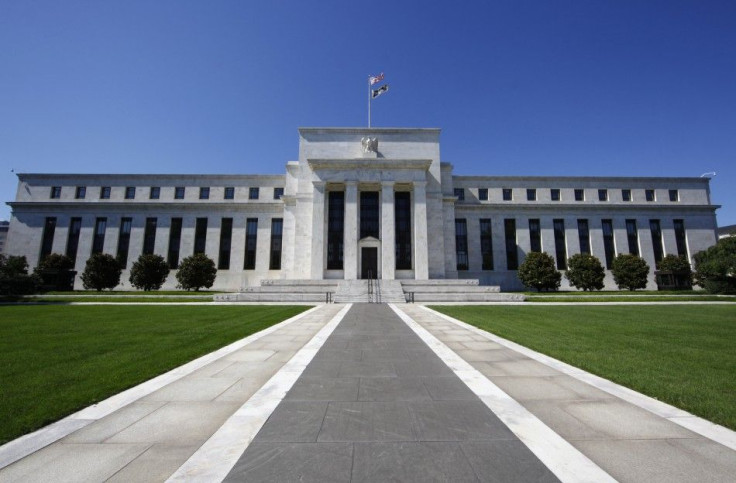Central Banks Already Hold 30% of Global GDP, Face Limit Of Power: BIS

Central banks are reaching the limit of their ability to boost economic growth and the potential for harmful side effects of more extraordinary monetary easing is growing, the Bank for International Settlements warned.
Central banks are being cornered into prolonging monetary stimulus as governments drag their feet and adjustment is delayed, the Basel, Switzerland-based BIS said Sunday in its annual report. Both conventionally and unconventionally, accommodative monetary policies are palliatives and have their limits.
Five years after the start of the financial crisis, the world economy is still in a fragile state. Confidence in the global recovery has eroded further over the past few months and markets are jittery.
Growth prospects in the advanced economies remain modest. European financial markets are under stress, and a number of European countries are in recession. While emerging market economies are growing more strongly than the advanced economies, they are not immune to the global slowdown.
In these difficult circumstances, calls for further economic stimulus are not surprising. Some argue that if only policymakers were less rigorous and stimulated more now, growth would eventually come to the rescue.
However, there are limits to what monetary policy can do. It can provide liquidity, but it cannot solve underlying solvency problems.
Monetary policy can buy time needed for other policies to correct fundamental balance sheet problems, Jaime Caruana, general manager of the BIS, told central bank governors attending the BIS annual general meeting in Basel. But even in this transitory role, monetary policy is not without limits or risks. Under current circumstances, the benefits of continued monetary easing cannot be taken for granted.
Caruana warned that the recent aggressiveness of the world's central banks may be creating unrealistic expectations about their power to resolve the fundamental problems that hold back sustainable growth and the risks of expanding central bank balance sheets are likely to grow.
Overall, central bank assets are at $18 trillion, about 30 percent of global gross domestic product (GDP), double the ratio a decade ago, according to the BIS.
Failing to appreciate the limits of monetary policy can lead to central banks being overburdened, with potentially serious adverse consequences, the BIS notes. Prolonged and aggressive monetary accommodation has side effects that may delay the return to a self-sustaining recovery and may create risks for financial and price stability globally.
Central bankers are under renewed pressure to step up efforts to resuscitate the slowing global economy.
Central banks find themselves caught in the middle, forced to be the policymakers of last resort. They are providing monetary stimulus on a massive scale, Caruana said.
The Federal Reserve expanded its Operation Twist program, which was due to expire at the end of June, last week and will swap $267 billion in short-term securities with longer-term debt. Fed Chairman Ben Bernanke reiterated at a press conference following the conclusion of the June Federal Open Market Committee (FOMC) meeting that he stands ready to do more should the U.S. economy take a turn for the worse.
Meanwhile, the European Central Bank has lent more than one trillion euros ($1.26 trillion) at its benchmark rate, and said this month it will continue to provide liquidity to solvent banks.
In the emerging market economies, the Central Bank of Brazil cut rates by 400 basis points starting in August last year, the Reserve Bank of India lowered policy rates by 50 basis points in April 2012, and the People's Bank of China cut its benchmark one-year loan rate by 25 basis points in early June. Some emerging market central banks, specifically those of China and India, also reduced reserve requirements.
Caruana identified three major risks of overburdening central banks:
The first is that prolonged monetary stimulus makes the necessary fiscal and structural adjustments seem less urgent, by making borrowers, commercial banks and fiscal authorities put off painful, but necessary fundamental adjustments.
Second, the financial stability risks of protracted low interest rates could be significant as financial institutions and investors, squeezed by low returns, may be making riskier bets in search of higher yields.
A third risk is that central banks may find it difficult to calibrate and implement the tightening of monetary policy that will inevitably be required. Excess bank reserves could translate into a significant, sudden and unanticipated expansion of bank credit.
Fiscal adjustment, the repair of banks' balance sheets and other reforms cannot be put off in the hope of better times, Caruana said. Relying only on central bankers but failing to act on other fronts would ultimately damage confidence and increase the risks to macroeconomic and financial stability.
--
© Copyright IBTimes 2024. All rights reserved.






















